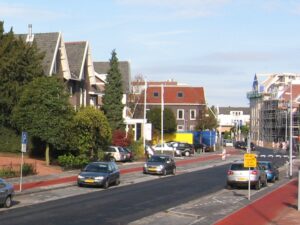Berlin’s Burgersrichtung Business Projekt made headlines (and leapt up the WCAIR rankings) this week after the team announced that their initial pass over city business registration databases had permitted the Berlin Police’s fraud unit to crack a tax fraud case. Wilhelmina Frohe, project director, said that her team’s AI spotted suspicious discrepancies in business registries almost immediately. “We had barely completed our first pass when these issues started popping up; purchase dates that didn’t align, figures that had been rounded incorrectly. We assumed it was data error at first but the more we dug, the more things clicked together. Obviously I can’t comment on the case, but it’s been an honour and a privilege to help the police, and I think it’s injected more thrills into the program than any of us had expected!”
Seoul joined the top 10 as well, as WCAIR judges took a ride in the first of the functional Seonbaecar self-driving vehicles linked to the City of Seoul’s traffic management system. The Seoul team have not hesitated to involve themselves directly in their research, using the programs they develop to help the team commute to the project on time.
As Beijing and Austin continued to jockey for first, Diamniadio struggled to maintain its place in the top 10, still trying to recover from severe delays caused by the failure of their air-quality monitoring hardware in Week 2.
Weekly Spotlight
TT2.0 Public Transit Optimization Algorithm Project: Toronto has Canada’s busiest public transit system, a complicated networking incorporating 5 metro lines, 10 streetcar routes, dozens of light rail destinations, and a huge multi-city bus-network that extends into neighboring municipalities. TT2.0 aims to dramatically upgrade the system’s aging 1980s-era computer infrastructure, using AI learning techniques to optimize passenger flow while minimizing wait times.
CityDreams AI Transit and Destination Mapping: Much like Toronto, New York is a city with a bustling transit system, one that very frequently caters to tourists. While the city has offered public information services in the past, it has never incorporated them directly into the transit system; CityDreams provides AI-guided destination planning and transit guidance in 8 languages, available from terminals mounted within city busses and subway cars.



